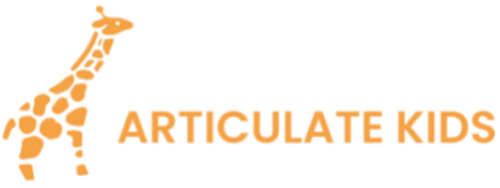Autism
Autism is a developmental disability that influences a person’s ability to communicate and relate to other people. It is a spectrum condition, meaning that while all people with autism will have similar problems, overall their condition will impact them in different ways. (Dept. of Health).

Early Years – The Young Child on the Autism Spectrum
Social Interaction
- Struggles to make sense of people and their behaviour and may easily become frightened of others
- May only approach or tolerate interactions with very familiar people
- May seem to use people, usually a familiar adult, as a means to an end / to get their needs met
- Appears unaware of simple social rules and conventions, for example, they may find it hard to join in circle time, integrate at birthday parties, share a toy – they may overly covet their toys and be resistant to shared enjoyment / interaction whilst ‘playing’ with an adult or peer
- Seems to relate better to objects than people
- May be described by parents as having been a ‘quiet / easy / sleepy baby’
- May have a strong desire for long periods of screen time and may watch the same programmes repetitively, rather than interact with others
- May tend to prefer solitary ‘play’.
Social Communication and Language
- Slower development of speech or may not develop speech at all
- Language may be echoed, in other words they may ‘parrot’ back a phrase they’ve heard either immediately or later on, resulting in a ‘stereotyped’ style of language / communication
- At infancy may develop words well but then ‘lose’ them from around 18 months, for example, they may say ’daddy’ ‘ball’ etc. early on and then stop using the word(s) altogether
- Generally uses fleeting or prolonged eye-gaze but does not seem to use eye-contact consistently with communicative intent
- Rarely understands or uses gestures
- They may seem to not respond to their name being called
- May have an slight ‘accent’ or different pitch to the tone of voice, a higher pitch is more common with young children with autism
- When upset may seem to ‘cry’ vocally but often without tears
- May have quite severe tantrums.
Social Imagination and Flexible Thinking
- May be slower to develop or there may be an absence of imagery / symbolic play
- They may seem inflexible and rigid in their thoughts and behaviour
- They may find any slight changes, in routine, difficult and may find social activities such as holidays whereby the routine and environment are different cause them to become unsettled possibly to the point of visible anguish
- They may find it very hard to settle into pre-school and become distressed when their main caregiver leaves them, even for short periods.
Sensory Difficulties
- Hearing, they may be hypertensive – covering their ears or humming loudly to block out noise, they may become easily distracted by background noise, e.g. aircraft noise, a door closing etc.
- Sight – may overreact to strong or artificial light
- Smell – may seem overly sensitive to everyday smells e.g. cooking smells, perfume etc.
- Taste, may have a bland palate (preferring a limited diet e.g. toast, chicken nuggets, chips, rice, smooth yoghurt) and reject particular foods or textures
- Touch – may be unable to tolerate ‘scratchy’ clothing, seek out certain fabrics and feel them repetitively e.g. may rub their body on the carpet
- Repetition – of stimulation, they may spin, show an interest in objects that spin, lay on the floor and look at objects at close proximity for example, watch the motion closely, e.g. wheels of toy car or train as they push it back and forth, they may twiddle their fingers and watch the movement (stimming), flap their hands
- Balance – they may find it difficult to learn activities that require balance, they may seek out sensations such as rocking or swinging; repetitively
- Body awareness – they may appear clumsy, have poor posture, hyper mobility; overly flexible joints often in the hips.
The school aged child – Autism in children between 5-16.
We understand the different developmental stages children go through and how it can bring about additional challenges for older children with Autism. We can help your child with inclusion and integration, at school. Furthermore, we can identify and support any specific language or communication needs affecting academic attainment, social interaction or emotional / behavioural development / mental wellness.
How can the Speech and Language Therapists, at Articulate, help my young child?
- Proven expertise. We have worked with children for over twenty years and have the expertise to ensure accurate and effective understanding and treatment of your child’s communication difficulty. Hulya is able to understand and spot very young children who may be at risk of Autism. We know that early intervention is key with any developmental disorder, including Autism. Why? Because this is the period of development when the child’s brain is most ‘plastic’, an incredible window of opportunity for young children to make fantastic progress where through therapy, we shape their play, language, behaviour and social interaction skills which are especially important in Autism. Hulya and the team see huge potential and possibilities, rather than limitations, for all children with communication difficulties.
- Proven Assessment. Our exceptional ability to evaluate your child’s communication and related difficulties affecting their development, for example, hearing, processing of speech sounds, facial muscular development, praxis of speech motor movements, attention difficulties, play skills, social interaction, language, behaviour and more enables us to plan and treat your child’s communication, with outstanding results.
- Passionate Professionals – Proven Results. We really care about each child’s communication and want to help them achieve the very best results in the least number of sessions. Our expertise, energy and passion combined with current evidence-based practice achieve measurable results which often exceed client expectations.
- Best Healthcare Providers. Twenty years of working in the Healthcare Sector – we are part of a professional network of exceptional children’s specialists, doctors and therapists who can provide additional assessment or treatment that your child may need.
- Hulya Mehmet is part of a select group of Speech and Language Therapists who is a BUPA Registered Provider. BUPA has extremely stringent criteria and is considered the ‘gold-standard’ in Healthcare.
- Family and child-centred. We understand that your child is at the centre of your Universe. Every assessment and therapy session is bespoke and tailored for the needs of your child’s specific communication.
We’re on Your Team. We provide an incredible amount of off-site support for parents – we are never more than a text message away from providing help.
